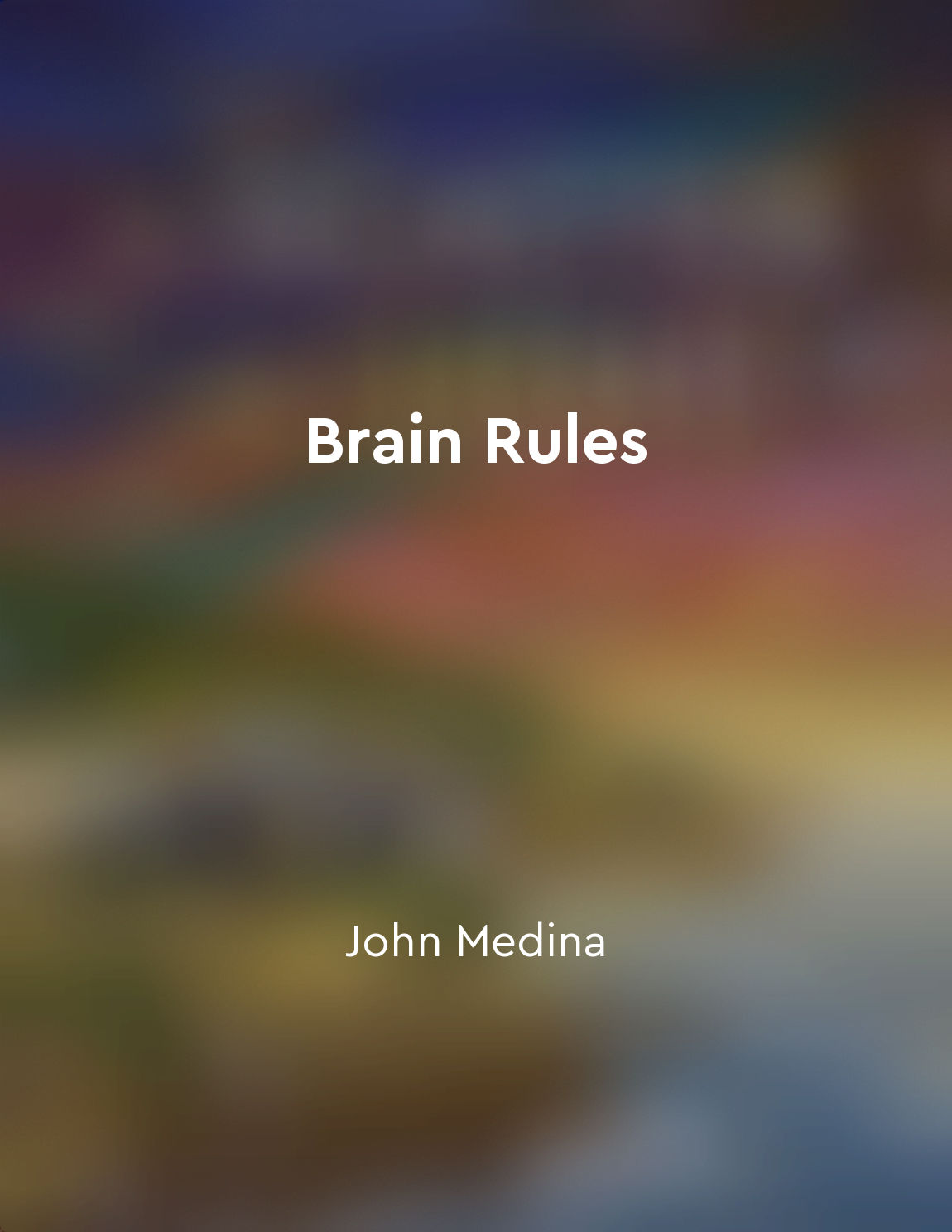Repeat to remember from "summary" of Brain Rules by John Medina
Repetition is key when it comes to remembering information. The brain has a remarkable ability to store memories, and one way to ensure that information is retained is to repeat it. This is because the brain is constantly looking for patterns and connections, and when information is repeated, these patterns become stronger. When we repeat information, we are essentially sending a signal to the brain that this information is important and needs to be remembered. This is why students are often encouraged to review their notes or study material multiple times before a test - the more times the information is repeated, the more likely it is to be stored in long-term memory. In fact, research has shown that the more times information is repeated, the stronger the memory becomes. This is known as the spacing effect, which refers to the way in which memory is enhanced through repeated exposure to information over time. By spacing out repetitions, we can strengthen our memory and increase the likelihood of retaining the information for a longer period of time. Repetition can also help to reinforce learning and improve understanding. When we repeat information, we are not only committing it to memory, but we are also giving ourselves the opportunity to think more deeply about the material. This can lead to better comprehension and retention of the information.- The concept of repeating to remember is a powerful tool that can help us to retain information more effectively. By incorporating repetition into our study habits and daily routines, we can enhance our memory, improve our understanding, and ultimately increase our ability to learn and succeed.


